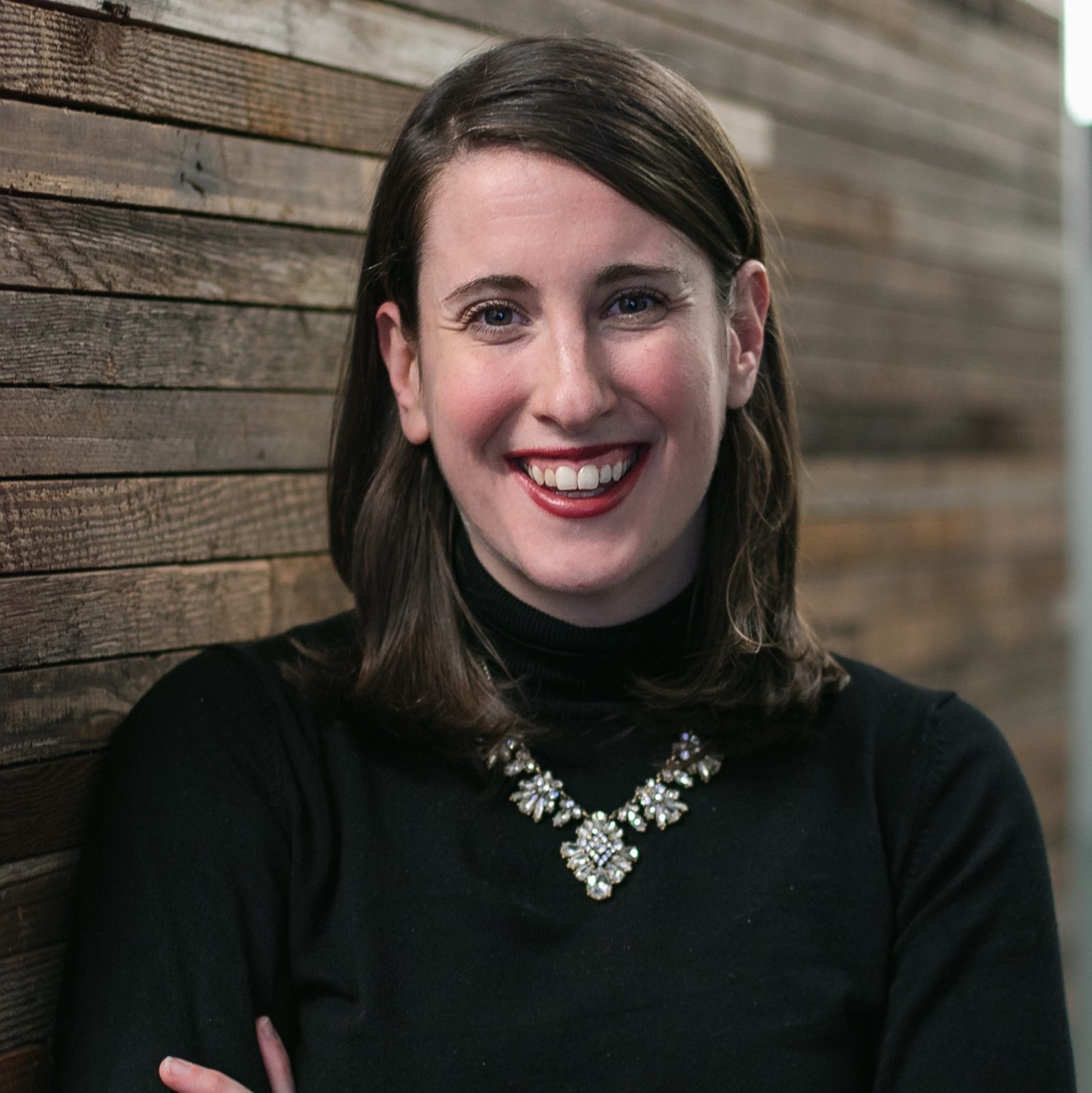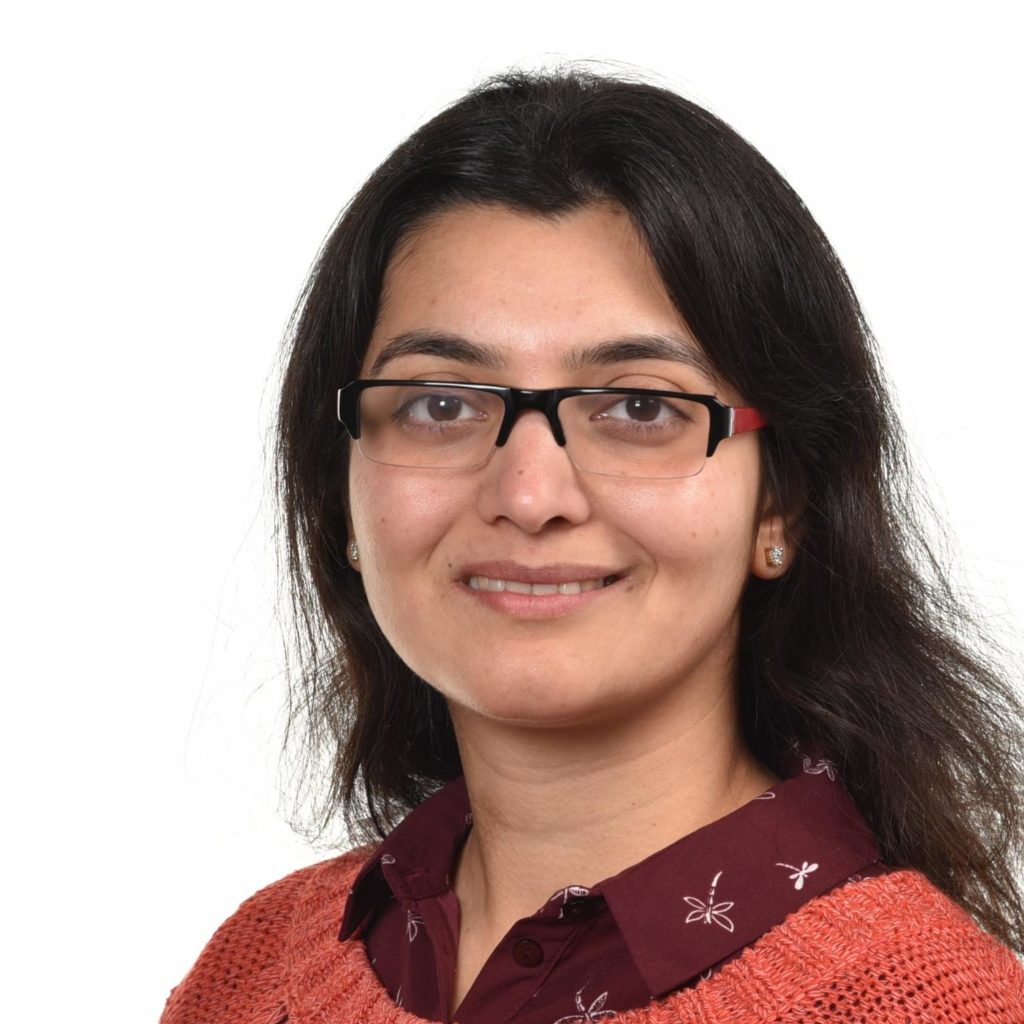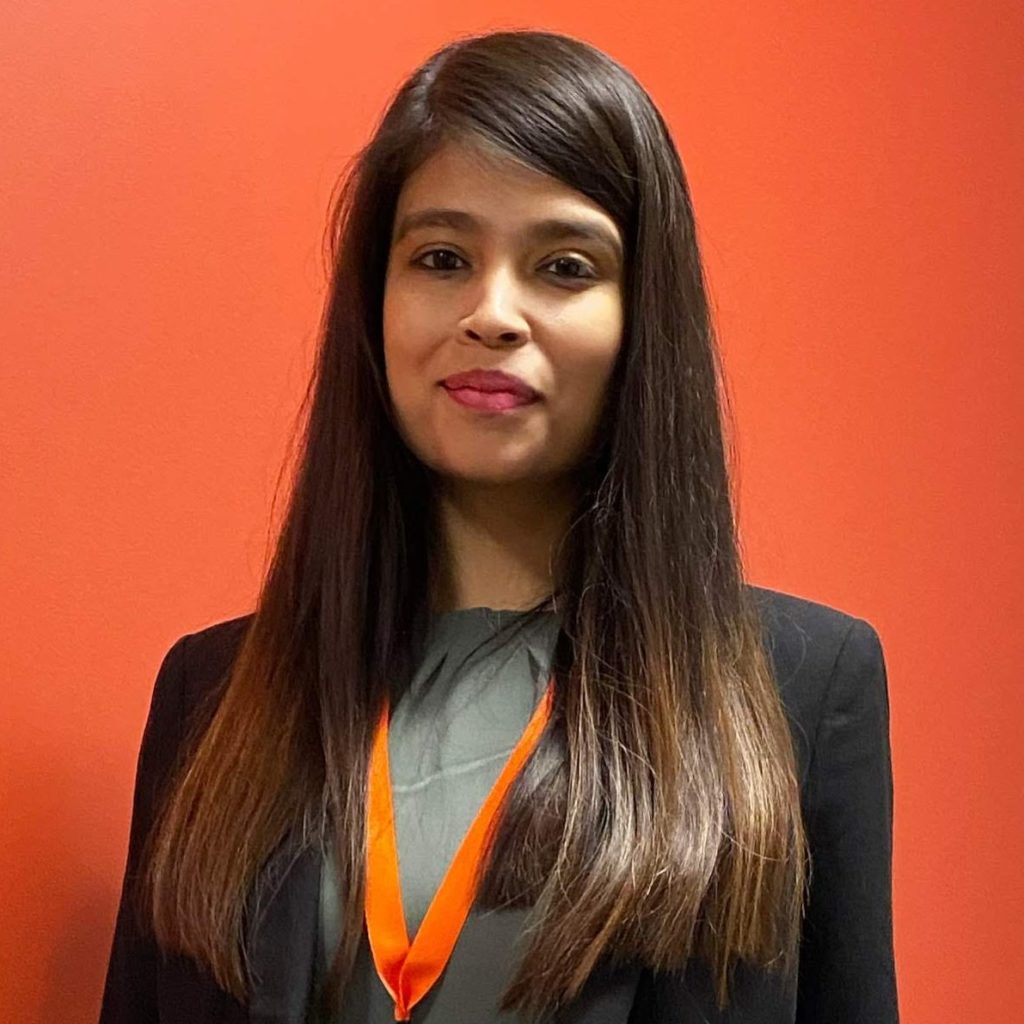An Accelerated Degree in Organizational Leadership
With the job market for management positions projected to grow rapidly until at least 2030—and U.S. companies eager to fill a self-described “leadership gap”—an accelerated master’s degree program centered on experiential learning prepares graduates for success in a broad range of fields.
“The new One Year Experiential Master of Science in Organizational Leadership can benefit professionals from all industries,” says Les Stein, assistant teaching professor and faculty director of the program. “This is a one-year degree that can energize graduates’ careers, make them more competitive in their individual professions, and offer opportunities to change their career trajectories or to grow within their current professional context.”
According to Stein, participants in the new program will begin with an introductory course in leadership in which they will conduct a self-inventory of their leadership skills, identifying areas of strength and opportunities for growth. In classes of 15 or fewer, students will explore a wide range of leadership styles, with special emphasis on understanding the ways digital technologies have shifted the landscape of leadership, with social media creating both new risks and new opportunities.
With sponsors from technology, healthcare, manufacturing, financial and other industry sectors providing meaningful, priority projects, and concentrations available in six categories—Coaching, Health Management, Human Resources Management, Leading and Managing Technical Projects, Organizational Communication, and Project Management—the new master’s degree program will give students ample opportunity for experiential learning. Representatives from industry partners will serve as speakers and lecturers, and students will work directly with partner employers to solve problems and connect with industry experts as they navigate the theories and techniques of leadership. The program is designed as a cohort model, offering students the opportunity to develop a network of peers, faculty, and potential employers.
“The accelerated, experiential Master of Science in Organizational Leadership will offer you valuable relationships with your program cohort as you gain firsthand experience in several industries and work alongside experts on real-world projects,” Stein said. “In just one year, you will complete your degree, add considerable connections to your professional network, and become a better candidate for your next promotion or dream job.”
Wide-Ranging Research Wins Recognition at RISE Awards
Six CPS students were honored at the 2021 RISE Awards, which recognize members of the Northeastern community universitywide for exceptional work in research, innovation, scholarship and entrepreneurship.






Victor Aimi (MS ’21, Corporate & Organizational Communication), Emily Bauer (EdD ’21, Higher Education Administration), Rhea (MPS ’21, Analytics), Joel Livingston (EdD ’21, Education), and Shreshthi Mehta (MS ’21, Leadership) won Focus Awards, while Kelsey Kaul (EdD ’22, Education) received a Category Award in Social Sciences, Business, and Law.
“The RISE Award means that others believe in the work I have done,” Livingston said. “I have always been someone who is self-motivated, but knowing that others see the significance of my research inspires me.”
Inclusive Engagement
Livingston was honored with the Graduate Innovator Award for “Restorative Justice Challenges and Culturally Responsive Classrooms to Improve Engagement.”
“Culturally responsive teachers create classroom environments that utilize symbolic curriculum to highlight beliefs and values related to cultural diversity and ensure that the images portrayed reflect positive aspects of multiculturalism,” Livingston said, describing his research. “Even more, culturally responsive classrooms can assist in keeping students of color engaged in class, which in return can influence positive behavior. In addition to culturally responsive classrooms, the implementation of restorative justice practices is recommended to maintain positive behavior. In many schools across the United States, restorative justice practices have been used as an alternative to suspensions, expulsions, and other exclusionary disciplinary practices. This inequality can prevent students of color from succeeding throughout their educational trajectory, leading them to misbehave more in school and the school-to-prison pipeline, which will ultimately prevent them from being successful and unlocking their full potential.”
The study for which he was recognized, he said, was designed “to ensure that restorative justice is more than just a buzzword in education.”
Diversity in Tech
In her project, “Reforming the Referral Process: Increasing Diversity for Tech Startups,” Kaul sought to address equity in the workplace.
“My research is rooted in understanding how to improve the diversity of technology teams at startups,” Kaul said. “This work is important because the technology sector impacts each of us, every day. Although the tech sector creates products for everyone, the teams that do this work are often not representative of the users they serve. The tech sector needs to increase its diversity to create better products.”
Kaul examined ways in which such companies can improve their diversity, focusing on how to ensure that referrals can diversify the pool of job candidates.
“This work is especially important to me because of my focus on ensuring the success of women and minorities in STEM,” she said. “At Northeastern I work with master’s in engineering students who are the future of the technology sector. My program is over 50% female, which is unique in this sector. In my role, I help these students prepare for their future careers in tech, but I often ask myself, where are they headed? Is the industry ready to support them? That is what led me towards this research.”
Improving Access
Supporting the success of women is at the heart of the work of Shreshthi Mehta. In “Exploring the Challenges of Employing Women as Porters in Cusco, Peru,”Mehta studied the cultural and demographic barriers preventing women from working as porters on the popular tourist trek to the Incan citadel of Machu Picchu. Her research revealed how measures to ease women’s access to such coveted jobs have proved profitable.
“Women of many cultures face several stereotypes, where they are prohibited from pursuing certain jobs or careers,” Mehta said. “The story of women porters in Cusco and their pursuit to work in a severely male dominated profession is revolutionary. It showcases the DEI [diversity, equity, and inclusion] initiatives of the owners of Evolution Treks in how diversity has proven to be beneficial to the tour company, in spite of the higher operational costs of employing women porters.”
Cross-Cultural Communications
Victor Aimi’s identity as an immigrant, he said, informed “Cultural Challenges of International Websites,” in which the native Argentine “set out to study why websites sometimes seem to have a mind of their own when accessed overseas.” In the course of his work, Aimi found that web technology is just one dimension in the more complex problem of making the web work well across borders.
“This is fascinating to me,” Aimi said, “because websites are a central part of any communications effort with international audiences, yet I did not often think of the cultural dimensions enabled by the web before this project. My habit was to just to rely on the technology.”
Receiving a RISE Award, Aimi said, illuminated his own identity in a way he hadn’t expected.
“As an immigrant I often experience cultural differences as a burden,” he said. “The award made me realize that cultural awareness can also be an advantage. I’m truly grateful to Professor Patty Goodman for helping me figure that out.”
Improving Efficiency
Rhea — who, like Aimi, is an international student—rooted her research in resource optimization, using her project, “Predicting Memory Utilization on High Performance Computing Cluster,” as an opportunity to help hone the efficiency of Northeastern’s research computer network.
“Northeastern made it easy for me to settle down in the culture,” the Analytics graduate said of emigrating to Boston from her native India. “At the very beginning of my experience, I was offered a part-time job at Northeastern, in Research Computing. I felt ecstatic and I couldn’t wait to apply all the knowledge into practice as I learned. I had a chance to learn from the best professors at CPS. This project was my chance to use my knowledge to create something for my university.”
By analyzing the way Northeastern’s high-performance computing cluster utilized memory, she developed a data analytics framework and a machine learning model that makes the cluster more efficient—and more easily accessible to researchers.
“I was lucky to have had this opportunity to learn from the best of my team here in the Research Computing department at Northeastern, and I can’t thank them enough for their constant support and motivation,” she said. “This experience has created a platform for me to move forward, and it has set a path for me to reach my career goals.”
Mental Health Literacy
Emily Bauer’s dissertation, “Mental Health Literacy in Student Affairs Graduate Preparation Programs,” focused on training non-clinical college and university student-affairs staff in identifying and intervening in emerging mental health issues for students. Citing increasing student mental-health concerns—and observing that they are now coupled with the lingering effects of the Covid-19 pandemic—Bauer described her study as a pilot education program aimed at graduate students in student affairs master’s programs “to enhance skills and confidence in the area of mental health literacy.”
Like many of her colleagues, Bauer’s research was inspired by direct experience in which she discerned a broader challenge.
“I chose the framework of mental health literacy based on my perspective as a mental health first aid instructor,” she said, “which has shown me that anyone can support and help others experiencing mental health concerns. I would like to empower those in my field to do this and take action to support students on college campuses.”
Livingston noted that his work, too, was rooted in personal experience.
“Restorative justice in schools is important to me because as a student in New York City public schools, I had several teachers who misinterpreted my lack of focus as defiance,” he said. “As a teacher/school administrator, I see many students experiencing the same issues I had. I am now in a position where I can change this narrative, and that is what I intend to do.”
Human Resources Professionals Offered NU Graduate Credit
In recognition of the rigorous program of study required to earn human resources certifications from the Society for Human Resource Management (SHRM), Northeastern University College of Professional Studies will offer students who have earned the SHRM-CP and SHRM-SCP certifications the equivalent of up to two courses of academic credit (6 quarter hours) toward a Master of Science in Corporate and Organizational Communication or a Master in Leadership and 3 quarter hours toward a Graduate Certificate in Human Resources Management.
“As a program for working professionals in the human resources field, we recognize the powerful combination of skills earned in the workplace and knowledge acquired through professional development programs such as those offered by SHRM,” said Carl Zangerl, PhD, faculty director, graduate communication and human resource management programs. “The SHRM certifications align with our Human Resource Management curriculum because they both emphasize the application of theory to practice and recognize the importance of lifelong learning in a rapidly changing field. Our shared aim is to equip human resource professionals with expertise that crosses industries and borders.”
Society for Human Resource Management Certifications
SHRM has created a rigorous, relevant and competency-based learning process that culminates in an examination that tests key areas of human resource knowledge, skills, and abilities.
“The SHRM-CP and SHRM-SCP certifications represent the global standard in competency-based credentials for HR and this initiative provides a great opportunity for Northeastern students to demonstrate their proficiency,” said Alexander Alonso, senior vice president of knowledge development and certification at SHRM.
Applying to Northeastern
Successful applicants to the Master’s program in Corporate and Organizational Communication or the Master’s program in Leadership, who hold either the SHRM-CP or SHRM-SCP certifications will enter with what is called “advanced standing.” The advanced standing transfer credit for the SHRM-CP is 3 quarter hours and for SHRM-SCP is 6 quarter hours, enabling students to complete an advanced degree in a shorter timeframe at an approximate overall tuition cost reduction of between 7% and 13%, depending on the certification. Applicants with SHRM certifications for the Graduate Certificate in Human Resources Management will receive 3 quarter hours of advanced standing transfer credit.
Northeastern University College of Professional Studies offers the Master of Science in Corporate and Organizational Communications and Master of Science in Leadership 100% online or on campus in Boston, Mass.. This provides flexibility for working professionals in a practice-oriented curriculum, taught by professionals in the field.